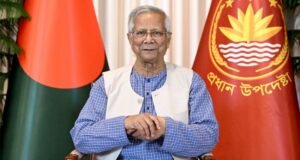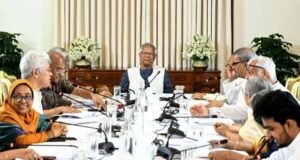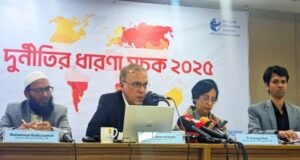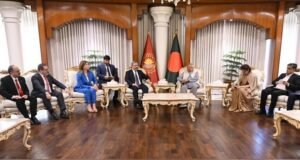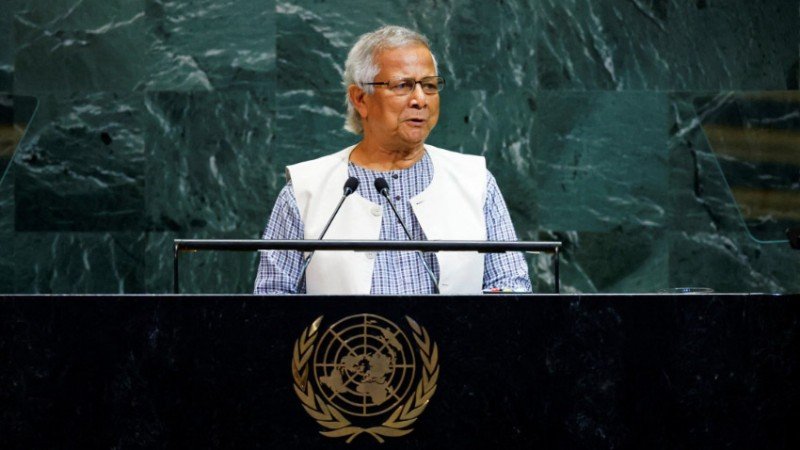
Chief Adviser (CA) Dr Muhammad Yunus on Tuesday called on the international community to take urgent and coordinated action to resolve the prolonged Rohingya crisis, stressing that repatriation to Myanmar is the only sustainable solution.
Speaking at the opening session of the High-Level Conference on the Situation of the Rohingya Muslims and Other Minorities in Myanmar at the United Nations headquarters in New York, the Chief Adviser said that “eight years since the genocide began, the plight of the Rohingya continues” while initiatives to end the crisis remain inadequate and international funding faces “alarming shortfalls.”
The Adviser emphasized that the crisis originated in Myanmar and can only be resolved there, urging the global community to put “effective pressure on Myanmar and the Arakan Army” to end persecution of the Rohingya and initiate their “expeditious repatriation” to Rakhine State. “It should not be held hostage to broader reforms in Myanmar,” he said.
Bangladesh, which currently hosts nearly one million Rohingya refugees, has borne significant financial, social, and environmental burdens, the Adviser noted.
He warned that declining international support is straining resources while cross-border criminal activities, including narcotics trafficking from Rakhine, are threatening Bangladesh’s social fabric.
The Chief Adviser also made clear that, given Bangladesh’s own developmental challenges such as unemployment and poverty, the country cannot allow employment opportunities for the Rohingya within its borders. Instead, he called for a practical roadmap to ensure safe, dignified, and sustainable repatriation.
Outlining a seven-point proposal, the Adviser urged the international community to:
First, devise a practical roadmap for safe and dignified repatriation of the Rohingya with reasonable stabilization of Rakhine;
Second, exert effective pressure on Myanmar and the Arakan Army to end violence against the Rohingya and start their sustainable repatriation, beginning with those who recently arrived in Bangladesh, and those who are internally displaced;
Third, mobilize international support to stabilize Rakhine and place international civilian presence to monitor stabilization;
Fourth, support confidence building measures for sustainable integration of the Rohingya in Rakhine society and governance;
Fifth, mobilize donors’ contribution to fully fund the Joint Response Plan;
Sixth, pursue accountability and restorative justice; and
Seventh, dismantle the narco-economy, and combat transboundary crimes.
Reiterating that the Rohingya themselves have consistently expressed their desire to return home, the Adviser said that beginning the repatriation process would require fewer resources than continuing international protection.
“The world cannot keep the Rohingya waiting any longer from returning home,” he said, urging collective global action. “Bangladesh stands ready to extend its full cooperation to this end.”
 Weekly Bangla Mirror | Bangla Mirror, Bangladeshi news in UK, bangla mirror news
Weekly Bangla Mirror | Bangla Mirror, Bangladeshi news in UK, bangla mirror news


